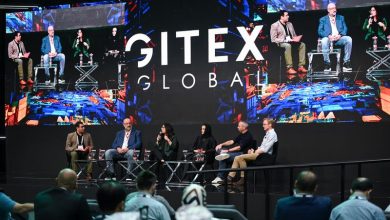
NEW YORK, Oct. 22, 2025 /PRNewswire/ — New research from The Conference Board finds that AI can provide up to 90% of day-to-day coaching functions. But human coaches can breathe a sigh of relief: Human expertise remains critical for emotionally charged, political, or values-based discussions.
The studies provide a roadmap for organizations to responsibly deploy AI-powered coaching that enhances performance and accelerates development. What’s more, AI is democratizing workplace coaching by making it possible for every worker—not just executives—to have a coach.
The reports highlight, however, that security and privacy pose significant risks. The more an AI coach knows about someone and the entire workforce, the more effective it can be, but the greater the risk if data is mishandled.
“AI coaching presents a pivotal opportunity for organizations to extend development to every worker. When used thoughtfully, it can democratize growth, magnify human coaches’ impact, and transform how companies build leadership capability,” said Allan Schweyer, Principal Researcher, Human Capital, The Conference Board.
Key findings include:
Cookie-cutter advice isn’t a concern: 96% of workers say AI provides customized coaching.
- 96% felt that AI’s responses were tailored to their goals or context.
- 90% of surveyed users find AI coaching easy and comfortable to use.
- 89% said that their session resulted in specific and useful next steps or developmental actions.
- 91% said they would use it again.
From role-playing to getting you to a new role, AI can do almost everything.
- Structure and goal orientation: Effectively guided conversations through a logical progression, from defining goals to practicing difficult scenarios, for a clear and purposeful coaching session.
- Encouraging critical thinking: Used open-ended and probing questions consistently, pushed the user to move beyond surface-level issues and reflect on the underlying causes and broader impacts of a situation.
- Effective role-playing: Accurately adopted a challenging persona during role-play simulations when prompted, providing a realistic environment for the user to practice and test their communication skills under pressure.
- Actionable feedback: Provided concise and actionable feedback, highlighting specific techniques that worked and offering clear next steps to help the user implement the learning.
Hold onto your human coaches, though. AI coaching has several weaknesses.
- A lack of personal connection: AI’s language sometimes felt scripted and lacked the genuine human empathy and nuance that builds deep rapport.
- Limited spontaneity: Some AI coaches may follow a pre-defined framework, making transitions feel abrupt and not always allowing for the natural, fluid pivots that occur in a human-led conversation.
- Inconsistent contextual memory: The general-purpose AI models retained context from previous interactions but were inconsistent, making it useful for a continuous coaching journey but with much room to improve. Dedicated AI coaching platforms performed much better in this regard but were not perfect.
“AI isn’t replacing human coaches—it’s amplifying them,” said Dr. Amit Mohindra, Distinguished Principal Research Fellow, The Conference Board. “By automating routine follow-ups and analysis, AI frees human coaches to focus on empathy, intuition, and strategic reflection.”
AI can serve as a powerful assistant to human coaches.
- AI can automate administrative tasks like matching coaches and clients and onboarding clients.
- AI can bridge gaps between coaching sessions, reinforcing accountability and helping clients translate insights into action.
- Human coaches can use AI for analysis, to suggest coaching questions in real time, and to identify client behavioral and cognitive patterns.
- After coaching ends, AI assistants can act as a trusted sounding board that highlights coaching milestones and inspires coachees to stay committed to their broader aspirations.
- AI can detect patterns across multiple coachees, highlighting systemic organizational issues and common employee developmental needs.
CHROs should consider adopting a tiered and blended model for AI and human coaching.
- Establish criteria for escalation to a human coach, like emotional distress or critical career decisions.
- Build psychological safety and transparency, ensuring AI coaching provides confidentiality.
- Invest in upskilling coaches and line managers so that they can interpret AI insights, customize them to the organization’s values and culture, and integrate them into their coaching conversations.
Watch the related webcast here.
About The Conference Board
The Conference Board is the member-driven think tank that delivers trusted insights for what’s ahead. Founded in 1916, we are a non-partisan, not-for-profit entity holding 501 (c) (3) tax-exempt status in the United States. www.TCB.org
View original content to download multimedia:https://www.prnewswire.com/news-releases/research-ai-can-provide-90-of-career-coachingbut-humans-still-matter-302591846.html
SOURCE The Conference Board




